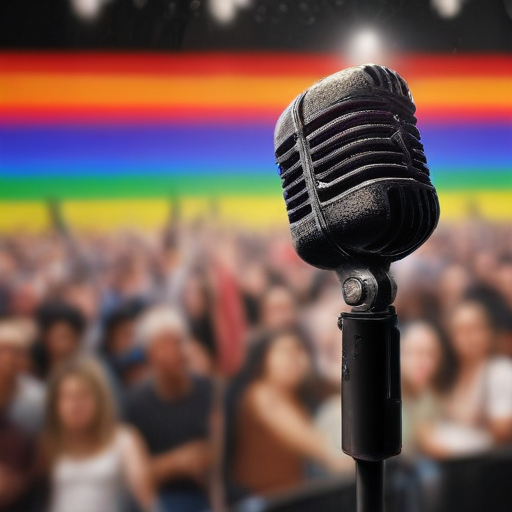Carrie Underwood has found herself at the center of controversy as she prepares to perform at Donald Trump’s upcoming inauguration, stirring mixed feelings among her LGBTQ+ fan base. Underwood, whose song “Love Wins” became a symbol of hope for many within the queer community, had previously expressed her support for marriage equality. However, her decision to participate in this politically charged event has led to disappointment and disbelief among fans who believed she aligned with progressive values.
Reflecting on Underwood’s past, many fans recounted her impact on their lives, citing her support for LGBTQ+ rights as transformative. An X user mentioned how Underwood was pivotal to their understanding of acceptance and love in the context of their gay identity. The strong connection fans felt towards her music and message, particularly during the critical moment of same-sex marriage legalization in 2015, is now being challenged by her upcoming performance.
In her statement regarding the inauguration, Underwood expressed her desire for unity, stating, “I love our country and am honored to have been asked to sing at the Inauguration and to be a small part of this historic event.” Nevertheless, the LGBTQ+ community perceives this call for unity as fundamentally hollow, given the political climate fostered by Trump’s administration, which included divisive policies and rhetoric aimed at marginalized groups.
Fans of Underwood have been vocal about their discontent, with some declaring they would no longer support her or her music. As they seek alternative artists who align more closely with their values, names like Kacey Musgraves and Maren Morris have emerged as more vocal advocates for LGBTQ+ rights and social justice within the country music scene.
Morris, who has been open about her frustrations regarding the political landscape in country music, recently announced her plans to step away from the genre, highlighting the overt biases and prejudices she witnessed during Trump’s presidency. This sentiment echoes a growing call among fans and artists alike for accountability and alignment with “what’s right.”
As the inauguration approaches, Underwood’s decision raises important questions about the intersection of art and activism, particularly within a genre that historically reflects broader societal values and issues. While she has maintained a non-political stance in public, the reality of performing at a presidential inauguration cannot be overlooked as a deeply political act.
This situation serves as a reminder of the complexities artists face in navigating their personal beliefs, relationships with fans, and the expectations of their platforms. For many fans, the hope for change and acceptance remains, albeit complicated by their feelings toward Underwood’s recent choices. Ultimately, this narrative underscores the ongoing struggle for visibility and representation within the music industry, as well as the impact of individual artist decisions on broader community sentiments.
